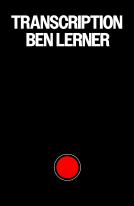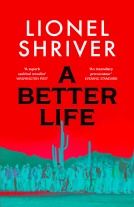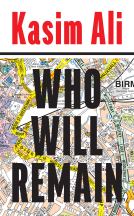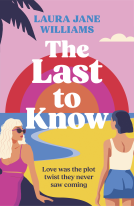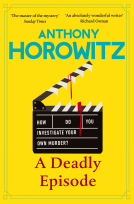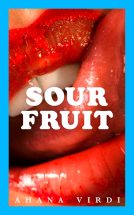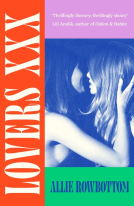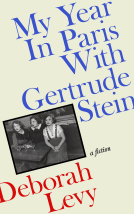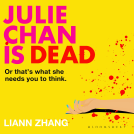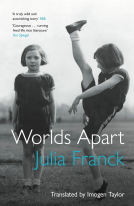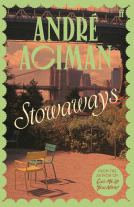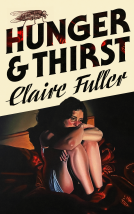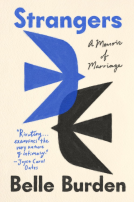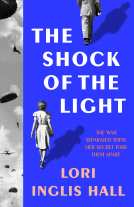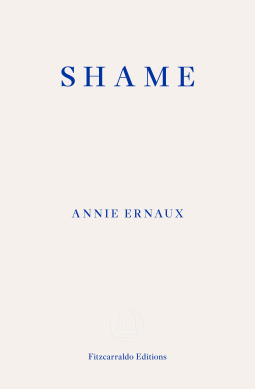
Shame
by Annie Ernaux
This title was previously available on NetGalley and is now archived.
Send NetGalley books directly to your Kindle or Kindle app
1
To read on a Kindle or Kindle app, please add kindle@netgalley.com as an approved email address to receive files in your Amazon account. Click here for step-by-step instructions.
2
Also find your Kindle email address within your Amazon account, and enter it here.
Pub Date 20 Sep 2023 | Archive Date 20 Sep 2023
Talking about this book? Use #Shame #NetGalley. More hashtag tips!
Description
‘My father tried to kill my mother one Sunday in June, in the early afternoon.’ Thus begins Shame, the probing story of the twelve-year-old girl who will become the author herself, and the traumatic memory that will echo and resonate throughout her life. With the emotionally rich voice of great fiction and the analytical eye of a scientist, Annie Ernaux provides a powerful reflection on experience and the power of violent memory to endure through time, to determine the course of a life.
Available Editions
| EDITION | Paperback |
| ISBN | 9781804270561 |
| PRICE | £9.99 (GBP) |
Available on NetGalley
Average rating from 26 members
Featured Reviews
The more I read of Ernaux, the clearer it becomes that each piece of writing is a fragment of a greater oeuvre that contemplates a historicised sense of European and female self in the latter half of the twentieth century forwards. Different aspects of 'Annie Ernaux' are foregrounded in each book, expressing a sense of the mutability and lack of easy coherence, that inability to say definitively and once and for all 'this is I'.
In this book, Ernaux returns to her parents and her adolescence, tracing the forces that press on her identity: class and socio-economic grouping, post-war generation, suburban France, education, religion, gender politics. The 'shame' of the title is generated in multiple ways and serves as a version of Proust's madeleine in the way it holds and releases memories that continue to shape her psyche.
As always, Ernaux's writing has a clean, clinical precision as she takes a scalpel to her memories of her earlier self. I think it is recognised that the two over-riding passions which propel Ernaux's writing are shame and desire: this book, originally published in the 1990s, is thus a critical component in understanding Ernaux's overarching project.
Shame by Annie Ernaux unveils a tender memoir, delicately crafted to trace the lingering echoes of a traumatic event that forever altered her young life. At the tender age of twelve, she bore witness to the unimaginable: her father's menacing threat against her mother's very existence. Yet, let us not mistake this work for a mere chronicle of despair, for within its pages lies a profound unraveling, an introspective disentanglement of an experience and its profound impact upon her existence.
Annie Ernaux's narrative weaves a distinct dichotomy between the life that came before and the one that followed, an indelible divide that casts its shadow across every facet of her being. With unwavering determination, she guides us through the contours of her introspection, illuminating the lasting imprint of that fateful incident upon her relationship with her parents, her religious upbringing, her social standing, her education, and even the complexities of her romantic entanglements. The aftermath of trauma becomes the very prism through which she reexamines her past, poring over photographs and cherished keepsakes, dissecting her memories to unearth their meaning.
As the title itself suggests, shame permeates every strand of this memoir's fabric. It manifests not only in Annie's grappling with her own shame following the traumatic event, but also in her poignant journey through adolescence, marked by the acute awareness of her class status and the judgments of others. Moreover, the actions and perspectives of her parents contribute to the tapestry of shame, intertwining with her own narrative in an intricate dance of emotions.
While not an arduous read, Shame may elicit a deep resonance within those who have confronted their own harrowing experiences. Annie's courageous exploration of her emotions invites empathy, inviting those who have on similar paths to find solace within its pages. For enthusiasts of the memoir genre, I wholeheartedly recommend this poignant work. It unfolds swiftly, yet with a raw sincerity that captivates and pierces the heart. Moreover, it presents an engrossing portrayal of growing up in the 1950s.
 Michael J, Educator
Michael J, Educator
The first sentence of Shame: 'My father tried to kill my mother one Sunday in June, in the early afternoon" is essentially the short novel in miniature. Like Annie Ernaux's other books, it brings to bear her direct and seemingly objective style on deeply personal experience. Its meditation on the effects of a traumatic event could be dismissed as an exaggeration, if it were not for its enduring impact on the then 12-year old Ernaux. Early on, she states that the book is an attempt to come to terms with and demystify this event: "I want to breathe life into it and strip it of its sacred aura (which long made me believe that it was responsible for my writing, that it lies somewhere at the heart of all my books)". As such it is an act of courage and faith and as such quite powerful, as well as being an evocative depiction of growing up in Normandy in the 1950s. Recommended.
I discovered Annie Ernaux a couple of months ago, when I read I Remain in Darkness and absolutely loved it and was immediately starved for more of her works. Her works are mainly autobiographical, depicting her own experiences as a woman in France trough different times of her life.
Shame specifically explores the summer of 1952, specifically one Sunday: »My father tried to kill my mother one Sunday in June, in the early afternoon. « (What an opening line!). Annie Ernaux explains that while her memory of that time is as fuzzy as a couple of photographs she has from that year she remembers this moment vividly because it entirely changed her life. Continuing on Ernaux explains the atmosphere of her small country-side home town, her parents business, the people there, her catholic private school and the girls she meets there. She explains how her upbringing served as a differentiating factors in many moments of her life, where the quaint small town mentality, where everyone worries what everyone else thinks, your business is everybody else's business and everything you do is harshly critiqued, makes a big impact on a young girl.
»The worst thing about shame is that we imagine we are the only ones to experience it. «
Shame becomes a vicious circle, where Annie assumes, that once it starts it will never finish and that she is entirely alone in it, yet it is something we all experience.
It is no secret, that Annie Ernaux has a way with words. The writing style is simple yet very quotable, Ernaux explains everything so intricately that you can't help but marvel at her experiences and what she has learned. In this book she shares immense wisdom and I highly recommend it.
I loved the descriptions of the author’s small hometown and what small town life was like in 50s France! The book could drag at times but it didn’t last very long. This is a short and quick read that can be finished in one day!
Ernaux talks about her family, specifically a scene in which her father nearly murders her mother at the age of 12. She also talks about working at her family business, their community, her religious education, adolescence/puberty, all glimpses into her life during her 12th year. I thought it was interesting to focus on these subjects as they all revolve around (and lightly touch) on the feelings of shame!
I was expecting more about Ernaux’s family incident and the aftermath, since this moment was the main starting point for the story. I would’ve been interested to learn more about her family life both before and after, how things changed, etc.
The ending felt a bit abrupt but from what I understand, each of her books is about a different portion of her life so maybe that’s why for Shame, the ending is left open because it’s leading into her other works. I’d definitely be interested to read more from Ernaux as I loved her lyrical writing! Plus from her other book synopsis’ they also discuss the idea of shame, as Ernaux stated that following the incident she forever feels a sense of shame.
 Reviewer 1198591
Reviewer 1198591
First published in the 90s, Shame starts with Ernaux’s recollection of an event that took place in 1952 when she was just 12 years old. Annie witnessed her father trying to kill her mother.
This is a fleeting moment of aggression that is all but forgotten by her parents shortly thereafter. But for Ernaux, it leaves a terrible, pervasive feeling of shame.
Ernaux examines in detail her life and the town she lived in in 1952, the still life that surrounds the moment she was suddenly transposed into a different world, a different body now flooded with shame.
She talks with clipped precision about the family cafe, the unspoken social rules of “Y” (the town she lives in), the school day at the private school she attends but has no friends, a somewhat failed trip to Lourdes with her father.
Ultimately though, Ernaux comes back to this moment of violence.
“I have always wanted to write the sort of book that I find it impossible to talk about afterwards, the sort of book that makes it impossible for me to withstand the gaze of others. But what degree of shame could possibly be conveyed by the writing of a book which seeks to measure up to the events I experienced in my twelfth year.”
This is a short but engrossing examination of post-war Normandy, and the psychology of a child on the verge of adulthood.
In this memoir Ernaux describes her 12th year, her family life, schooling and the town she lives in trying to make sense of an event that sticks in her mind. The opening sentence My father tried to kill my mother one Sunday in June, in the early afternoon. grabbed my attention.
Shame by Annie Ernaux is a short, powerful memoir that explores the author's experience of childhood shame. The book begins with the author's father trying to kill her mother, an event that will have a profound impact on the author's life. Ernaux writes about the shame she felt as a child, the way it shaped her relationships with her family and friends, and the way it continues to haunt her into adulthood.
Ernaux's writing is both unflinching and lyrical. She writes about her shame with a clarity and honesty that is both painful and illuminating. She does not shy away from the difficult aspects of her story, but rather confronts them head-on. This makes Shame a difficult but ultimately rewarding read.
One of the things that makes Shame so powerful is Ernaux's ability to capture the nuances of shame. She writes about the way shame can be both physical and emotional, the way it can manifest itself in both small and large ways. She also writes about the way shame can be isolating, the way it can make us feel like we are the only ones who are experiencing it.
This is the first Annie Ernaux I've read and I found it quite fascinating.
The title sums up pretty much the whole of this memoir. She sees her memory of her father trying to kill her mother as something that marks her out among her peers. But it is not just this that she feels brings shame to her family. Her school friends all seem to belong to a different class - are more worldly, more intelligent, just better. She feels intense shame in all aspects of her daily life, even to the point of believing herself damned for having chewed the host during communion.
Parts of the story are probably something that any of us could identify with. It's a very readable story and I zipped through probably a little too quickly. I shall, no doubt, go back and read it again and will make an effort to read more of Ms Ernaux's work.
Thanks to Netgalley and Fitzcarraldo for the advance review copy.
To be a memoirist of a calibre of Ernaux naturally requires that one have a wealth of experience from which to draw out these stories; told in unforgiving, uncompromising prose which drags the reader's eyes to the often ignored viscitudes of life.
Readers who liked this book also liked:
Agatha Christie
General Fiction (Adult), Historical Fiction, Mystery & Thrillers
